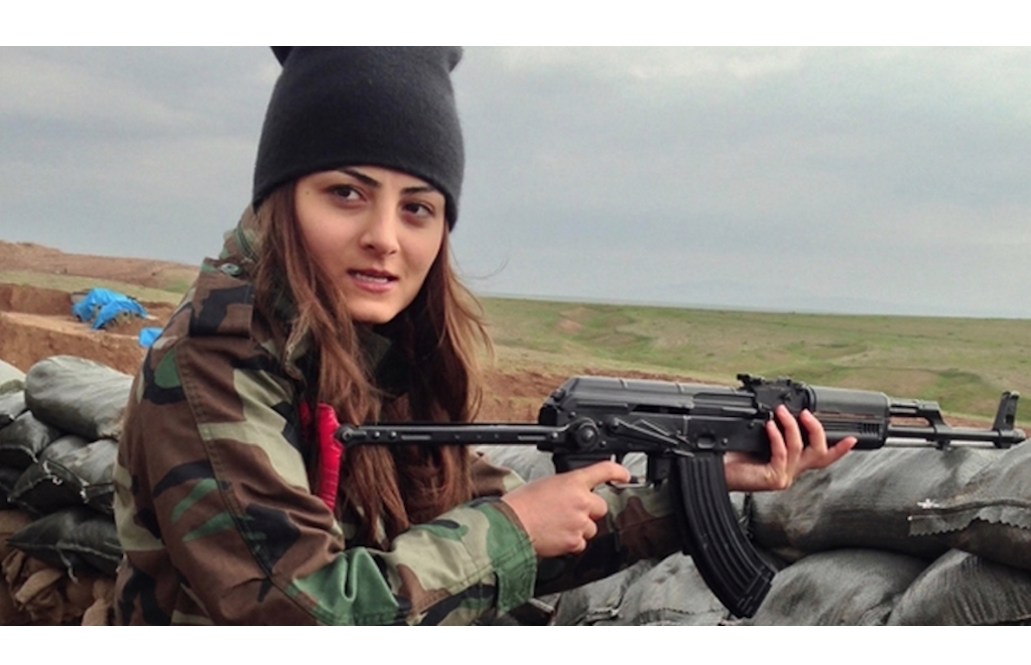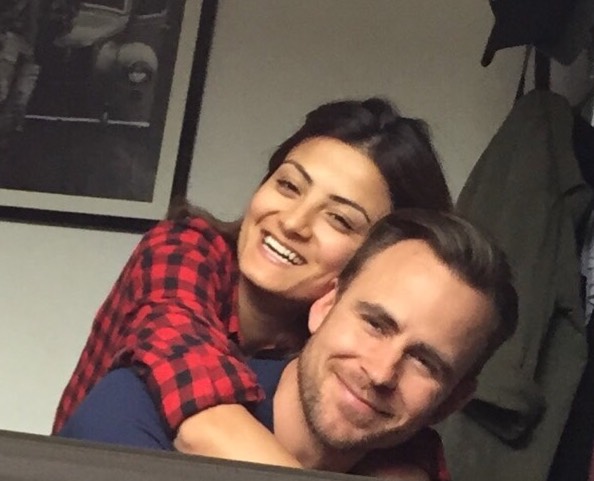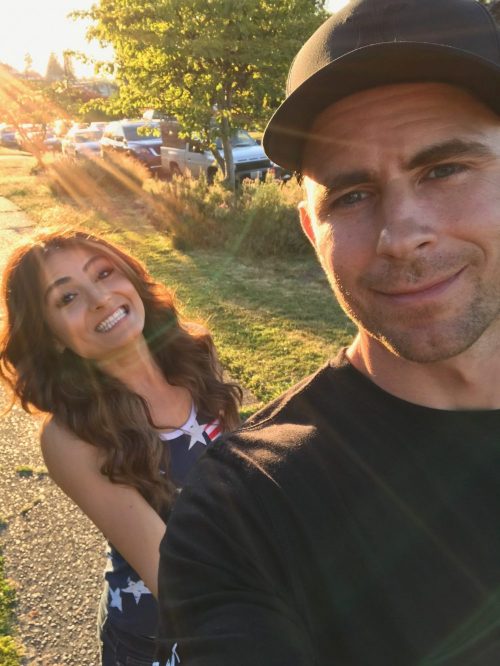aan het woord
Love in times of war
Amidst blackened misery, Shilan found the love of her life

Responsibility comes in many shapes and sizes. Shilan Hamid was 25 years old when she felt she could no longer stand by idly. She quit her job as a hairdresser in Almere, said her goodbyes to family and friends, and left to help in the war against IS. Her departure was news for days. A few years on, we wondered how she fared. It turns out her story got a very special twist, because in Iraqi Kurdistan, amidst the blackened misery and sadness of war, on the sands of hope and shattered dreams, she found love.
Shilan: ‘I can vividly remember the beginning, I came home from a long day at work, it was late at night and the misery with IS had been going on for quite a while. The television was spewing images of the attack on the Yezidis in Kurdistan, while in the kitchen my mother stood quietly, stirring a pan, tears looming in her eyes. It had bothered me for a while, ‘not again!’ echoed in my head, ‘when can we just live in peace over there, when will other people stop telling us who we are, or are not, and whether or not we may exist?’ It had been a recurring theme during my life. My mother told me what had happened and I just broke. While I sat in my room, the events haunted me, along with a feeling of uselessness. How could I just allow those horrors to happen? How could I keep doing nothing?
A sudden realization came over me, washed away any doubt. I went downstairs resolutely and announced, “Enough, I am going to Kurdistan!” My mother listened as I explained my reasons. She said she wanted to do something herself, but couldn’t. It only strengthened my determination. She told me to consult with my father, so I called him immediately. Before he could say anything I had begged him to let me go, convinced of the fact that I could start a new life there. I firmly believed that everything would one day be safe in Kurdistan. He agreed, probably because he never thought I would actually end up anywhere near a line of fire. So we bought a one way ticket to Erbil.
Enough, I am going to Kurdistan
In the beginning I was accompanied by my father and uncle. Through friends of my father we had some connections with leadership amongst the Peshmergas. At Mosul Dam I met the main general, Aziz Weysi. He gave permission for me to join and referred us to a Zerevani camp of the Pershmerga, where I said goodbye to my father. I entered the camp and immediately stumbled into a lesson about mortars. There were two men in uniform explaining how they worked. All details were covered, from the mechanical operation to calculations about distance and height. We had to come forward in pairs and disassemble one and then learn how to put them back together faster. I participated, still in my Western clothes, hair neatly styled.
I stayed there for a while, but the training wasn’t what I had expected, I remember jumping up and down during morning gymnastics thinking: ‘This isn’t training!’. We never really fired any weapons, for me that came later. These ladies weren’t being prepared for battle, they were like a bureaucratic branche, they had families and children at home to go to. They had to know stuff, but just in case of absolute emergency.
I stumbled into a lesson about mortars
Until my presence changed the dynamics. Suddenly Weysi was talking about sending these women to the front line. The women of course were not too pleased with that. At meetings they protested the proposals, while my only thought was: ‘I want that!’
We did go to Mosul Dam a number of times to help, with food packaging for example. That’s where I met my husband. At first our contact was very general. I chatted with him and two others members from his team, as I regularly did with other soldiers from Germany and France. Among other things to thank them for what they did for us. The team leader came and we all made a photo together. Later he came back and gave me his number, in case we ever needed help. As he bent down to tell me that, I looked deep into his eyes and saw how beautiful they were. We texted back and forth for a while and eventually he dared to tell me that he felt something for me.

We went on a date, which isn’t as strange as it may sound. In big parts of Iraqi Kurdistan life went on pretty much as usual, and in a city as Duhok you find all kinds of opportunities to go on dates. We went out for dinner and even went to the cinema. We saw an American movie, I believe it starred Liam Neeson and wolves, but to be honest, we paid more attention to each other than to the screen. I never expected Americans could fall so deeply in love.
Our love is a beautiful bright light that shone through the darkness I witnessed there. The entire trip was extremely unreal. On the one hand I was finding love, on the other my husband was teaching me about the best moment during your breathing to pull a trigger. Or how to treat a bullet wound. In turn, I taught what I learned to other Peshmerga’s. A necessity, as people in the field where dying because they didn’t know how to stop the bleeding after they were shot in their arm or leg.

When I was just behind the line of fire,at the place where the ambulances were ready to take people away, I saw a lot of suffering. Everyone who was injured ended up there. I had to feel if I could find a heartbeat in people, which unfortunately sometimes wasn’t the case. It’s so bizarre to see and experience that from up close, to have to close someone’s eyes. Or to see a man whose leg was gone due to an explosion, who was so shocked that he kept trying to get up and falling over again, looking around haggardly. Present, but gone. We came through bombed and abandoned areas, full of burnt down houses and car wrecks.
The further we came, the more intense it became. Strangely enough, sometimes the landscape was breathtakingly beautiful. A mixed experience, as was my entire period there. You are very aware of life, there is always a feeling of being outside your comfort zone, of adrenaline rushing through your body. You get a very clear picture of what is important in life. For us, that was being together. He said he wanted to live where I wanted to live and I felt the same. I have always felt that after all the misery in the area would vanish, I could live in Kurdistan, build an existence, open a salon or something. But he is in the army and many people depend on what he does. Eventually he had to return to America and I went with him. Now we live together in North Carolina, are married and I am awaiting my green card. It has been a special trip. The Netherlands gave me and my family the chance of a new life after we fled Iran, a new beginning. My parents have endured so much and thanks to others we have been able to live a normal life. By going back I hope that I also made a difference. After all, we are all responsible for each other!’